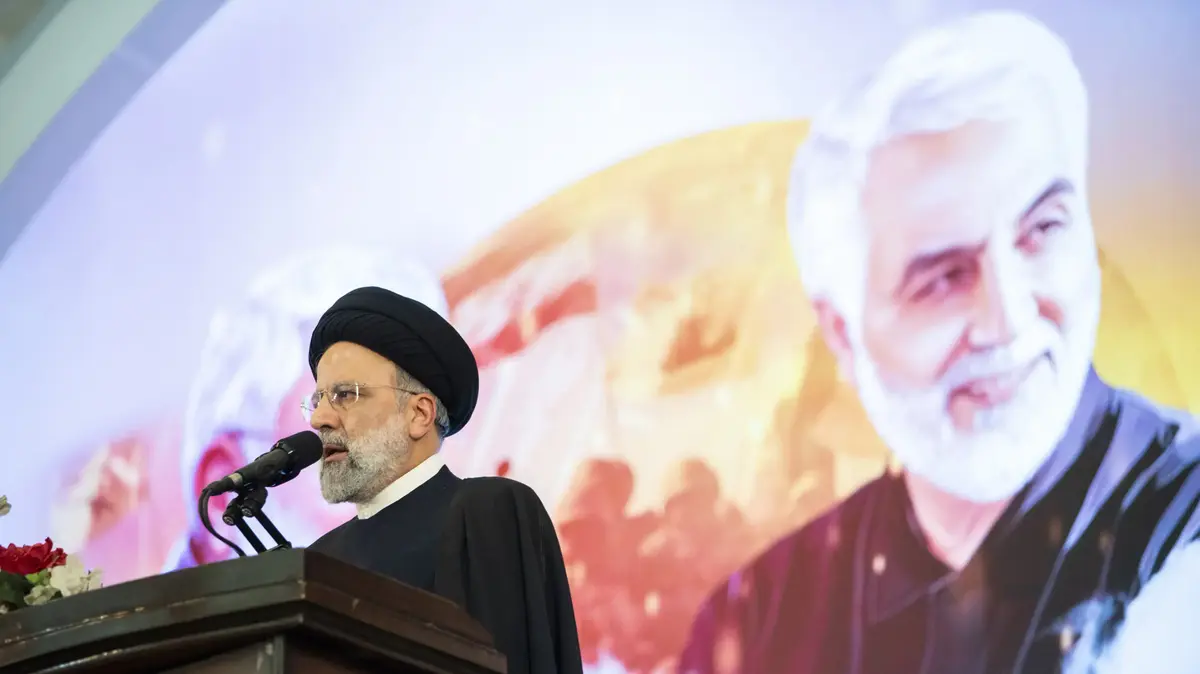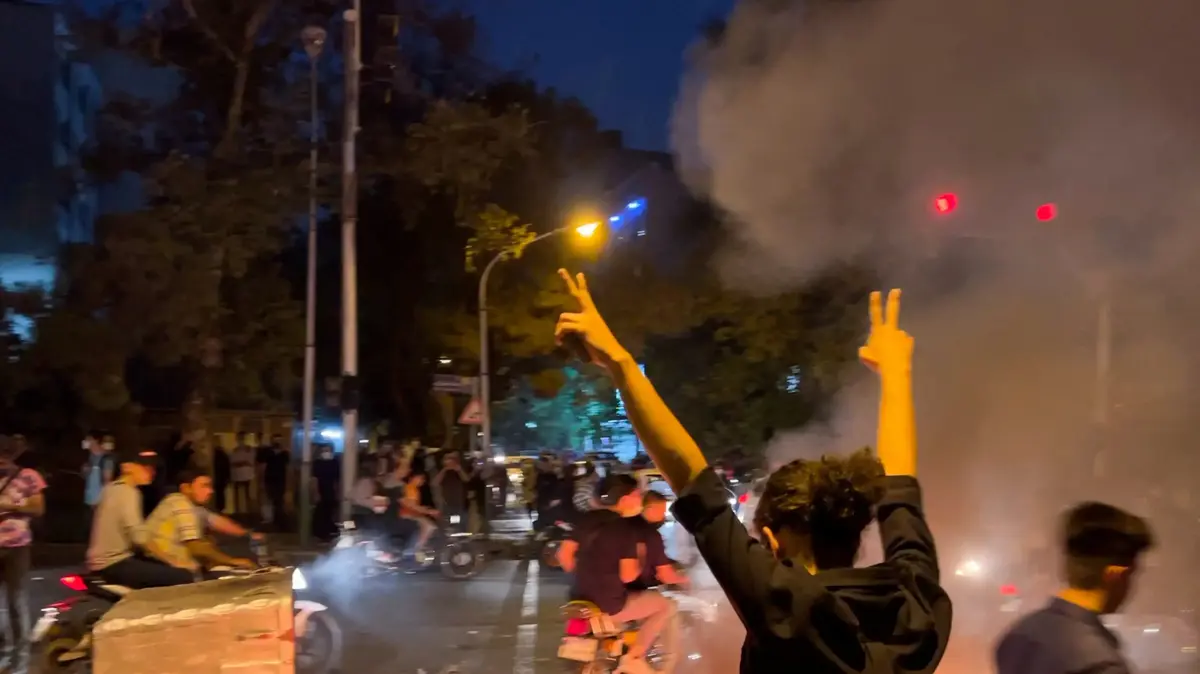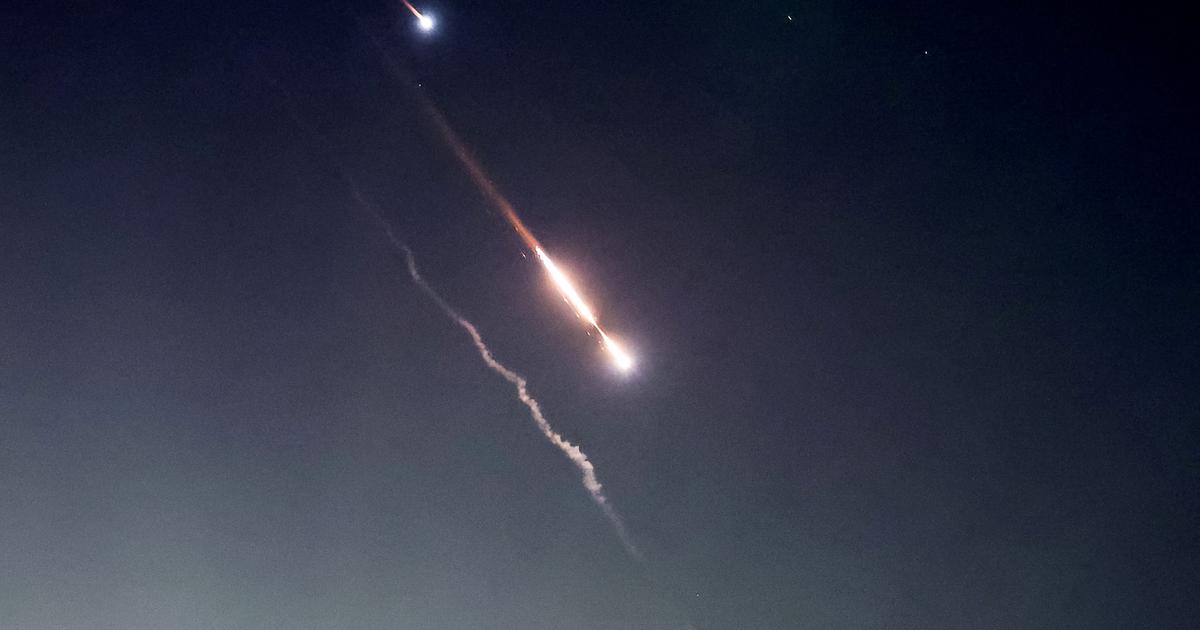Bloody hands.
Raisi at a ceremony to mark three years since the assassination of Soleimani, this month (Photo: Reuters)
As a young prosecutor in Tehran, Ibrahim Raisi sat on the "death commission" that, according to human rights groups, oversaw the execution of hundreds of prisoners in the Iranian capital.
Today, three decades later, he is the president of Iran and is mentioned by many as a possible successor to Supreme Leader Ali Khamenei.
He leads a firm line against the challenges that the Islamic Republic is facing from home and abroad and that have been met with dozens of death sentences handed down by the courts.
Four people were hanged in recent weeks following their conviction for crimes related to the protests that broke out in September following the death of the 22-year-old Kurdish young woman Mehsa Amini, who was arrested by the morality police for violations of the Islamic dress code.
On Saturday, former Defense Ministry official Ali Raza Akbari was executed for spying for Britain.
The executions drew condemnation from Europe and the United States, but Raisi promised to continue to "find, prosecute and punish" anyone the authorities believe was involved in acts of violence.
"The purpose of the executions is to create a republic of fear, where citizens will not have the courage to protest and senior officials will not have the courage to defect," said Ali Vaaz, director of Iran at the International Crisis Group research institute.
According to London, Akbari, who received British citizenship and lives outside Iran, was "enticed" to return to his country and was arrested three years ago.
Dozens of protesters face execution.
A protester sentenced to death at a hearing in a court in Isfahan, this month (Photo: Reuters)
The repression that Raisi leads to the crushing of the demonstrations, which according to human rights organizations led to the killing of more than 500 demonstrators and dozens of members of the security forces, is reminiscent of his role in the political purges that took place in 1988.
That year, a few weeks after a ceasefire in July led to the end of the war with Iraq after eight years, the authorities in Iran carried out mass executions of thousands of political prisoners and regime opponents.
According to a report by the human rights organization Amnesty International, the regime then established special tribunals, which were called "death committees", and these were composed of clerics, prosecutors and intelligence officials.
The committees decided the fate of thousands of detainees in arbitrary trials, which lasted only a few minutes.
Although the number of those executed during that period has never been confirmed, Amnesty estimates that it is at least 5,000 people.
According to Amnesty, Raisi, who was then Tehran's deputy prosecutor general, was a member of the capital's death commission.
The Human Rights Watch organization published a report last year in which a prisoner was quoted as saying that he had seen Raisi outside a prison in the capital.
He said that Raisi arrived at the execution site to ensure that the procedure was carried out properly.
"A judge or prosecutor who protected the safety of citizens should be praised," Raisi replied in 2021 when asked about his involvement in the killings in the 1980s.
"I am proud that I defended human rights in every position I held."
The presidential office did not respond to the article.
Raisi's chances of succeeding him have diminished.
Supreme Leader Khamenei (Photo: Reuters)
Officials in Iran admit that regime opponents were indeed executed at that time, but they claim that it is a much lower scale than described.
In February 1989, then-President Akbar Hashemi Rafsanjani claimed that "less than a thousand were executed."
In 2016, Iranian media quoted another member of the "death committee" in Tehran as saying that "we are proud to have carried out God's order."
"Raisi was promoted to president for several reasons, including his brutality, his loyalty and his lack of conscience. He demonstrated these qualities in 1988," said Saeed Gulgar of the University of Tennessee at Chattanooga.
"He is a full partner in the political oppression."
Raisi was born in 1960 to a religious family in the city of Mashhad, in northeastern Iran, which is holy to Shiites.
He lost his father at the age of five, but followed him in religious studies.
As a young student at a religious seminary in the holy city of Qom, he joined the protests against the Western-backed Shah and was overthrown in the revolution of 1979. Later,
Raisi served as Deputy Head of the Judiciary for a decade, before being appointed Attorney General in 2014.
Five years later, the United States imposed sanctions on him for human rights abuses, including executions in the 1980s.
In 2017, Raisi ran for the presidency and lost to incumbent President Hassan Rouhani, from the more moderate camp.
Many attributed his failure to a 28-year-old audio tape uncovered a year earlier that highlighted his role in the executions.
In the recording, Ayatollah Hussein Ali Muntazari, then the Deputy Supreme Leader, can be heard talking about the executions.
The cleric's son was arrested and imprisoned following the publication of the recording.
Iranians with western citizenship are also executed.
A demonstration in Lyon, France, against the regime in Iran, this month (Photo: Reuters)
After four years, Raisi won the presidential elections and thus the radical current, loyal to Supreme Leader Ali Khamenei, took control of all government institutions, for the first time in years.
His victory is seen as one that will build his power as the future successor to the 83-year-old Khamenei, but experts and insiders estimate that Raisi's failure to revive the faltering economy and difficulties in his foreign policy have hurt his chances of becoming the next supreme leader.
Khamenei, not the president, has the final say in the foreign and security policy of the Islamic Republic.
"He does not lead the oppression, he is one of its tools," Vaz said of Raisi.
However, Raisi's strong position, which is in line with Khamenei's line, guides Iran's policy in the international and domestic arena.
Since he took office, Iran has hardened its positions in negotiations to save the nuclear agreement with the powers, betting that it has leverage to obtain extensive sanctions relief in exchange for curbing its advanced nuclear program.
Khamenei supported the original nuclear deal signed in 2015 under Rouhani's administration, which led to Iran's temporary exit from international isolation.
But in 2018, US President Donald Trump unilaterally pulled out of the agreement and reimposed sanctions on Tehran, saying the agreement - signed during the Obama administration - was too lenient towards Iran.
news
world news
the Middle East
Tags
Iran
Ibrahim Raisi
Executions















